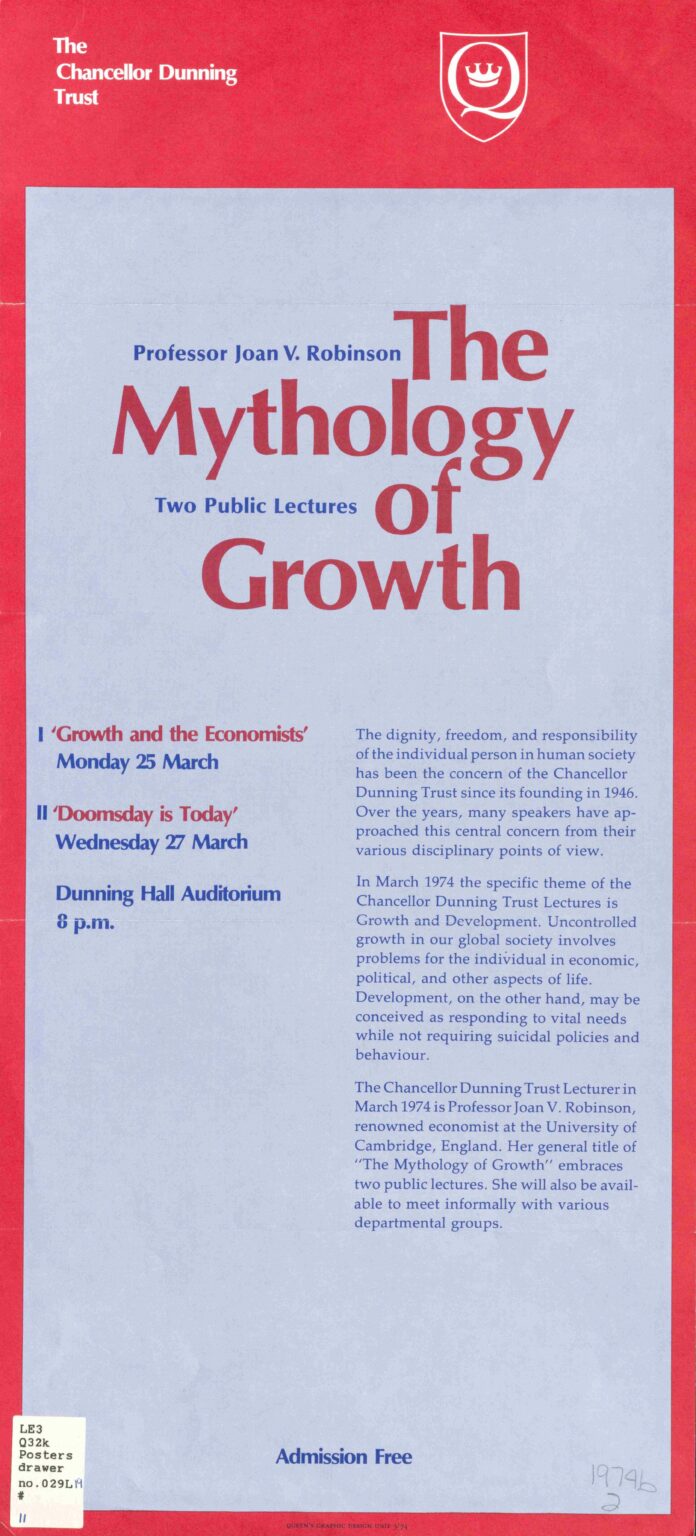
Joan V. Robinson was a distinguished economist from the University of Cambridge and a central figure of post-Keynesian economics. She was the author of The Economics of Imperfect Competition, which challenged the belief that industries are perfectly complete or competitive monopolies. In her other work, she added to the basic components of Keynesianism, including clarifying ideas that were not initially clear in his writings, as she did in her Introduction to the Theory of Employment. Robinson was the first to define macroeconomics as the “theory of output as a whole.” From the mid-1970s until 1982 she was a frequent visitor at the Centre for Development Studies in Thiruvananthapuram, India, to which she donated the royalties from some of her books. One of her students, Amartya Sen, was also a Dunning Trust lecturer. In the introduction to her second Dunning Trust lecture, she was described as a rare economist who could communicate about the entirety of human problems without denaturing or undermining her competence as an economist. She died in 1983.
Robinson gave two lectures, each filled to capacity. In “Growth and the Economist,” Robinson discussed the relationship between the discipline of economics and the ideology of growth. While an increasingly segment of the population viewed the Earth as a spaceship with limited resources, economists continued to believe that consumption could grow endlessly. Robinson traced the process through which growth became a fashionable subject in the postwar period due to Cold War government policy. Once growth was an established policy goal, economists began to take it up. Robinson then explained the difficulties of measuring growth: the defence of growth ideology centred on the idea that what is growing is national welfare, but growth was determined primarily by measurements of national income. She argued that this resulted in a false belief that consumption was equivalent to welfare, which had grave consequences for our relationship to the environment.
In “Doomsday is Today,” she explained that while economists and other social scientists were busy calculating a future ‘doomsday’ when the world’s resources would stop supporting the whole human population, millions were going hungry in the present. Doomsday was already the reality for a huge portion of the world. She critiqued current foreign aid programs, especially the phenomenon of anti-aid. While Canadians grew complacent about their complacency, Robinson advocated for a commitment to give genuine aid. Robinson ended by forcefully arguing that Canadians needed to focus on what they could do, not what they ought to do. The latter would overwhelm them and prevent action entirely. In the question and answer period, she spoke at length about her experiences in China, the Chinese state and society.
The two lectures were held on March 25 and March 27, 1974. Listen to them both below.
“Growth and the Economist”:
“Doomsday is Today”:
